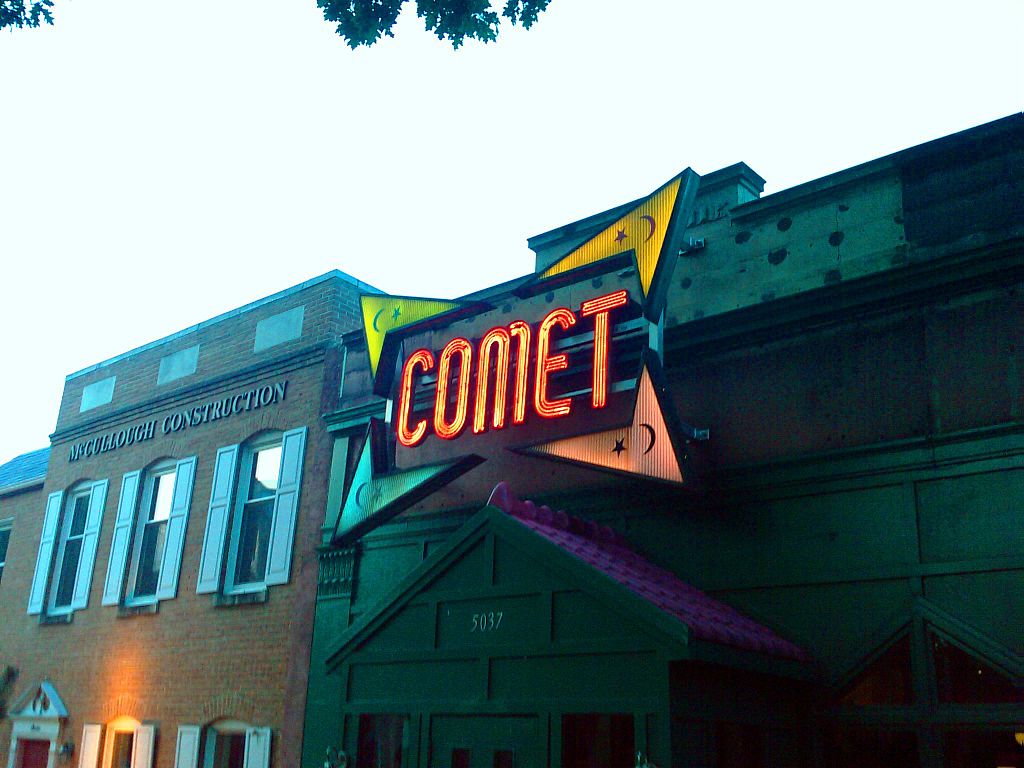Determining Moral Responsibility in the Pizzagate Shooting
On December 4th, North Carolina resident Edgar Welch walked into Comet Ping Pong, a Washington, D.C., pizza restaurant, with an assault rifle strapped to his chest. Inside, he reportedly fired several shots and pointed his rifle at a Comet Ping Pong employee as the restaurant’s patrons scattered. No bystanders were injured, and once Welch failed to find what he came for, he surrendered to police.
This week, Welch will return to court in relation to the incident at Comet Ping Pong, a dramatic turn in what has become known as the “Pizzagate” conspiracy. For weeks prior to the attack, online conspiracy theorists had besieged the restaurant with baseless accusations that it has conspired with politicians like Hillary Clinton to traffic and abuse young children. Welch reportedly latched onto these conspiracies, ultimately deciding to take matters into his own hands through a vigilante “investigation.” While Welch’s legal guilt may seem straightforward, the ethical questions his case raises underscore the complexities of moral responsibility in the time of fake news.
In most regards, Welch’s legal guilt is difficult to question. He brandished and fired an assault weapon in a crowded restaurant, and lacked a legal permit for the pistol he carried during the incident. Doing so clearly endangered those in the restaurant, and Welch should not be absolved of responsibility for this fact. Officials also believe that Welch went into the incident preparing for violence, a fact that compounds his responsibility. Welch reportedly spent several days casing out the restaurant, and, in a text message to a friend, said he had accepted the possibility of “sacrificing the lives of a few for the lives of many,” in reference to saving the children he believed were being abused at Comet Ping Pong.
Legally, then, Welch’s case does not appear to present any particularly controversial questions. The issue gets complicated, however, when one considers the moral dimensions of his crimes. Welch himself justified his attack in strongly moral terms, referencing basic utilitarian ethics by prioritizing the lives of the many – in this case, children he believed were being trafficked through the restaurant – over the lives of the few who might be injured or killed by his “investigation.” Once he failed to find evidence of any crimes, Welch also chose to surrender, limiting the negative impact of his actions in a situation that easily could have ended with loss of life. Court documents reinforce the notion that Welch’s moral convictions played a guiding role in his actions, suggesting that he claimed to have come armed primarily in order to facilitate the rescue of abused children.
Such facts do not seem to indicate that Welch acted out of an impulse to commit acts of violence for their own sake, or even to punish the owners of Comet Ping Pong; rather, available evidence suggests that he knew the consequences of his actions, but believed he was acting morally. Welch also ultimately expressed regret for his actions, telling The New York Times that he would have conducted his investigation differently in retrospect. These factors complicate any narrative that would see Welch’s actions as wholly unethical, requiring his moral responsibility to be evaluated in light of his motivations.
In this regard, though his actions were no doubt irresponsible and unethical, Welch’s justification for his attack could be seen as morally reasonable. If Welch truly believed that children were being tortured and abused in the basement of Comet Ping Pong, it may be reasonable to judge him less harshly. Indeed, if children were actually being tortured in the restaurant, and if Welch’s attack helped bring an end to the practice, his actions would be judged more favorably from a moral (and perhaps even a legal) standpoint. A key aspect of the incident’s immorality, then, stems from the fact that Welch acted on information that turned out to be completely false. In light of this interplay, another question must be asked: to what degree do those who propagated the Pizzagate conspiracy theories that informed Welch share responsibility for his crimes?
While pinning moral responsibility on a specific entity is difficult, some actors involved in the Pizzagate controversy could share the blame. This is primarily due to the fact that Welch was inspired by the media that led him to investigate Comet Ping Pong in the first place, particularly the dissemination of conspiracy theories through fringe personalities like Infowars’ Alex Jones. For years, Jones has used his platform to push incendiary and largely baseless conspiracies, including the theory that tragedies like the Sandy Hook massacre were faked to promote gun control, and that the government was responsible for the September 11th terrorist attacks. In the days preceding Welch’s attack, Jones featured the Pizzagate conspiracy prominently on his radio show, even telling his listeners that “you have to go investigate it for yourself” – suggestions that mirrored the actions taken by Welch, who professed interest in Jones’ site. It is unknown whether Welch took direct inspiration from Jones’ call, but Jones’ use of his platform to call for vigilante investigations is troubling, to say the least.
So too must one consider the growing problem of “fake news” that further disseminates incendiary conspiracies like Pizzagate. If Facebook’s troubles with the issue are any indication, fake news is far more than a problem of a few individuals failing to identify false information. Rather, fake news stories on the platform have garnered hundreds of thousands of shares and comments, prompting the company to claim some responsibility and take increased action against the spread of false information. Given this fact, one must question whether individuals who take action based on false information should be held singularly responsible for such actions – especially if systemic actors like social media platforms have not done enough to curtail its spread.
Ultimately, Welch’s case comes down to a question of blaming the individual versus the system that played a role in bringing him to a pizza parlor, assault rifle in hand. Certainly, one could argue that Welch should have known better, and that his failure to investigate the conspiracy through nonviolent means makes him morally responsible for his actions. One could also argue that conspiracy theorists like Alex Jones share some responsibility, since they have used their online platforms to peddle conspiracy theories and encourage their listeners to take the investigation into their own hands. Jones’ own reaction to the shooting – distancing himself from the conspiracy and removing video clips in which he urged listeners to investigate for themselves – suggests that he may be concerned with such an assessment. And while larger trends of fake news do not provide another distinct entity to share moral responsibility, they may share some responsibility for actions of those like Welch.
Determining the extent to which systemic conditions like Jones’ programming or fake news should be blamed is critical – if Welch’s actions would have targeted a legitimate issue or worked to prevent actual child abuse, his attack on Comet Pizza could be viewed in a more ethical light. And while doing so may not absolve Welch of his actions – after all, he still pursued justice through armed vigilante action – it may cause his actions to be seen as less blameworthy given the circumstances that led him to believe he was acting morally.
While Welch’s legal guilt may be decided swiftly, the troubling systemic circumstances that led him to see his crime as a well-intentioned effort to save children will not. Though his ideas are reprehensible in most respects, Jones’ sites have endured many a controversy and will likely continue to spread misinformation – especially given Jones’ ties to President-elect Donald Trump. Fake news will also likely continue to pose problems on Facebook, even as the platform moves to crack down on its proliferation. If not addressed and curtailed properly, such trends could continue to produce vigilantes like Welch – a fact that, if action is not taken, those involved in such trends will hold some responsibility for. As Welch awaits trial, one can hope that these systemic actors will be scrutinized just as meticulously.





